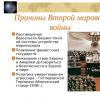Shareholders can demand the repurchase of their shares from the JSC that made the decision on the reorganization if they voted against it (or did not take part in the voting at all). And the joint stock company in this case has no right to refuse them pp. 1, 3 tbsp. 75 of the Law of December 26, 1995 No. 208-FZ (hereinafter referred to as Law No. 208-FZ). Let's look at how to reflect the repurchase of shares in accounting.
Share repurchase
As is known, an organization can use no more than 10% of the value of its net assets to repurchase its own shares. This standard is calculated on the date of the decision that caused the repurchase Order of the Ministry of Finance No. 10n, FCSM No. 03-6/pz dated January 29, 2003. The total number of shares that a JSC can repurchase is determined by dividing the amount that, according to the standard, the JSC can use to repurchase shares by the redemption price, which must be indicated in the notice of a general meeting on the issue of making a decision on reorganization. clause 2 art. 76 of Law No. 208-FZ.
If the number of shares offered for repurchase is greater than the total number of shares that the JSC can repurchase taking into account the standard, then the claims of shareholders who voted against (or did not vote at all) are not paid off in full, but in part. To do this, you first need to determine the share of shares that can be repurchased, taking into account the standard, in the total number of shares presented for repurchase by shareholders. It is in this share that the shareholder’s claims will be repaid clause 5 art. 76 of Law No. 208-FZ.

Own shares purchased from shareholders are not financial investments and are not an asset at all for the joint-stock company, since the repurchase of shares leads to a decrease in capital and not to the emergence of economic benefits clause 3 PBU 19/02. They are reflected in account 81 “Own shares repurchased from shareholders” in the amount of the actual costs of their repurchase by posting a debit to account 81 – credit to account 51 “Current account”. In the balance sheet, such shares are shown in section III “Capital and reserves” on line 1320 “Own shares purchased from shareholders” in parentheses, since this indicator reduces the total amount of equity capital.
The fate of the repurchased shares
As a general rule, repurchased shares can either be redeemed or resold.
To redeem shares means reducing the authorized capital (debiting account 80 “Authorized capital” – crediting account 81 “Own shares purchased from shareholders”). But if, as a result of reorganization, the company ceases to exist, then the redemption of shares is a simple formality; you can leave them in account 81. After all, shares purchased from shareholders are, in fact, unpaid authorized capital. Therefore, even if you do not repay them, nothing bad will happen; they will still not be converted into shares of newly emerged companies clause 9.4.5 of the Standards for issuing securities and registering securities prospectuses, approved. By Order of the Federal Financial Markets Service dated July 4, 2013 No. 13-55/pz-n.
But the repeated sale of repurchased shares can help increase the transferred assets (money).

Organizations that cease to operate as a result of a reorganization may sell their shares before the reorganization is completed. Organizations that do not cease their activities upon completion of the reorganization (for example, separating or acquiring organizations) can sell their own shares within a year after their redemption or redeem them within the same period.
The sale of repurchased shares must be reflected by posting the debit of account 51 - credit of account 81:
- <если>the price of the new placement is less than the redemption price, then an entry must be made for the amount received from the sale of shares. The difference (that is, the “unclosed” balance on account 81) should be written off against retained earnings by posting a debit to account 84 “Retained earnings (uncovered loss)” - credit to account 81;
- <если>the price of the new placement is greater than the redemption price, then an entry is made for the amount of the redemption price (that is, within the balance of account 81), and the difference (that is, the “unclosed” balance on account 51) is written off to additional capital by posting the debit of account 51 - credit of account 83 “Additional capital”, this is the so-called share premium clause 68 of Order of the Ministry of Finance dated July 29, 1998 No. 34n.
REMIND THE MANAGER
If the company didn't manage to re-sell repurchased shares within a year, then your own shares will still have to be redeemed.
Please note that income and expense items cannot be used; profits or losses from transactions with own shares must be reflected in capital accounts paragraph 33 of IAS 32 “Financial instruments: presentation of information”.
The result from the sale of own shares does not form the indicator of the financial performance statement on line 2520 “Result from other operations not included in the net profit (loss) of the period" clause 7 of IFRS IAS 1 “Presentation of financial statements”.
Let us illustrate with an example how to reflect the repurchase and redemption of shares in accounting.
Example. Accounting for repurchase and redemption of own shares
/ condition / The authorized capital of the joint-stock company is 135,000 rubles, its net assets as of the date of the decision on reorganization by merger amounted to 200,000 rubles. No more than 20,000 rubles can be used to repurchase shares. (RUB 200,000 x 0.1). The shareholder submitted a demand for the redemption of 500 shares. There were no other demands from shareholders. The announced repurchase price is 100 rubles, the nominal price of the share is 10 rubles. The repurchased shares will subsequently be redeemed.
/ solution / JSC can only buy back 200 shares (RUB 20,000 / RUB 100). The remaining 300 shares of the shareholder will be converted into shares of the organization created during the reorganization.
In conclusion, we would like to add that in relation to LLCs, “forced” redemption of shares in connection with reorganization is not provided for by law. After all, if at least one LLC participant voted against the reorganization, then such a decision cannot be made on clause 1 art. 92 Civil Code of the Russian Federation; clause 1 art. 8, pp. 1, 2 tbsp. 23 of the Law of 02/08/98 No. 14-FZ.
The activities of joint stock companies are inextricably linked with the movement of shares. They are implemented not only by shareholders. The company itself can also participate in the acquisition and disposal of its own shares. At the same time, it is necessary to strictly observe the grounds and procedure for acquiring shares and, just as important, remember the existing restrictions, because violation of the law by the company gives shareholders the right to protect their interests and challenge the conclusion of transactions in court.
Publication
According to paragraph 1 of Art. 72 of the Federal Law “On Joint-Stock Companies” dated December 26, 1995 No. 208-FZ (hereinafter referred to as the JSC Law), the company has the right to purchase shares placed by it, if such a possibility is provided for by its charter. To do this, it is necessary to hold a general meeting of shareholders, who must decide to reduce the authorized capital of the company by purchasing part of the outstanding shares to reduce their total number. In accordance with Part 2 of Art. 72 of the Federal Law “On JSC”, a company has the right to simply acquire shares placed by it by decision of the company’s management body, which, according to the charter, is granted the appropriate powers. In addition, the charter may provide for the possibility of acquiring one’s own shares in order to use the pre-emptive right (Clause 3 of Article 72 of the Law on JSC), and in cases established by Art. 75 the company is obliged to purchase shares from a certain category of shareholders.
As you can see, the company has the right (and in some cases the obligation) to purchase its own shares. However, in practice this can be difficult to do, because The legislation provides not only complex procedures, but also certain restrictions for the company to acquire its own shares. But first things first.
Restrictions
Art. 72 and art. 73 of the JSC Law establishes general restrictions on the company’s acquisition of its own shares. Let's look at them.
1. The company has the right to acquire its own shares only if such a possibility is provided for by its charter (paragraph 1, paragraph 1, article 72). In addition, a company can acquire its own shares only on the basis of a decision of the body competent to resolve this issue.
If at least one of these conditions is not met, the court will recognize the acquisition transaction as void.
Arbitrage practice
The court, recognizing the company’s repurchase of its own shares as void, indicated that the right to such acquisition arises in the presence of the circumstances specified in Art. 72 of the Law on JSC. A company may acquire shares placed by it, if this is provided for by the company's charter, and only by decision of the board of directors of the company (if, in accordance with the company's charter, it has the right to make such a decision) or the general meeting of shareholders.
However, the charter of the OJSC did not provide for the possibility of repurchasing the shares it placed. In addition, a meeting of the board of directors or a meeting of shareholders on this issue was not convened or held. In connection with the above, the court concluded that the disputed agreements do not comply with the requirements (resolution of the Federal Antimonopoly Service of the Moscow District dated July 12, 2006 No. KG-A41/6060-06).
A similar conclusion is contained in other court decisions, in particular, in the resolution of the Federal Antimonopoly Service of the North-Western District dated December 15, 2010 in case No. A56-30342/2009.
2. The acquisition by the company of its own shares to reduce their number and reduce the authorized capital is prohibited, if after this the par value of the shares remaining in circulation becomes lower than the minimum amount of the authorized capital provided for in Art. 26 Law on JSC (paragraph 2, article 72).
That is, for an OJSC such an acquisition is possible if the par value of the remaining shares does not become less than a thousand times the minimum wage (minimum wage) established on the date of registration of the company, and for a CJSC - less than a hundred times.
Let us recall that from January 1, 2001 to this day, the minimum wage applied in this case is 100 rubles. (Article 5 of the Federal Law of June 19, 2000 No. 82-FZ “On the minimum wage”).
3. The company cannot acquire its own shares if the par value of the shares remaining in circulation is less than 90% of the authorized capital. In this case, all transactions and (or) several interrelated transactions are taken into account, regardless of the number of shares they were made for (paragraph 2, paragraph 2, article 72).
Arbitrage practice
The company made eight transactions on one day to acquire its own shares in a total number of 401,012 shares, which is 67.51% of the total number of shares in circulation.
Meanwhile, according to the provisions of paragraph 2 of Art. 72 of the Law on JSC, when a company purchases its own shares, 90% of their total number must remain in circulation. In this regard, all transactions (several simultaneously executed transactions), the conclusion of which led to a decrease in the total number of shares in circulation to a level below 90%, are void, regardless of the number of shares they were made for. A different interpretation leads to the loss of the meaning of this norm and allows you to buy up all shares of the company in blocks of less than 10% (resolution of the Federal Antimonopoly Service of the North Caucasus dated December 9, 2099 in case No. A53-8377/2008).
5. Own shares acquired by the company must be paid for in money, unless otherwise established by the charter (paragraph 2, paragraph 4, article 72). Otherwise, the transaction will be declared invalid.
Arbitrage practice
The board of directors decided to exchange company shares owned by an individual for real estate. At the same time, neither the acquisition price nor the form and period during which the acquisition was carried out were determined. Also, the requirement to pay for shares in cash was not fulfilled and the rights of other shareholders who were not notified of the decision to acquire a block of shares were violated.
The company’s charter stated: “the company has the right to acquire shares placed by it for the company’s employees by decision of the company’s board of directors. The repurchase of shares is carried out at their market value, determined by an independent appraiser.” At the same time, the document did not establish payment for shares in any other form, therefore payment for shares upon their acquisition must be made in money.
Having established these facts, the court declared the transaction void (resolution of the Federal Antimonopoly Service of the Volga District dated February 14, 2008 in case No. A12-4991/06-C44).
6. The company does not have the right to acquire shares placed by it (clause 1, article 73) if:
A) the authorized capital is not fully paid;
b) the company meets the signs of bankruptcy or such signs appear as a result of the purchase;
c) the value of net assets is simultaneously less (or will become less as a result of the transaction):
- authorized capital;
- reserve fund;
- the difference between the liquidation and par values of the outstanding preferred shares (if the company acquires its own ordinary shares);
- the difference between the liquidation and par values of outstanding preferred shares, the owners of which have priority in the order of payment of the liquidation value (when purchasing preferred shares).
8. In the current legislation there is another case of restrictions on the company’s purchase of its own shares.
Clause 1 of Art. 5 of the Federal Law of December 21, 2001 No. 178-FZ “On the privatization of state and municipal property” determines the circle of buyers of state and municipal property in the process of its privatization. As a general rule, they can be any individuals and legal entities, with the exception of:
- state and municipal unitary enterprises;
- state and municipal institutions;
- legal entities in the authorized capital of which the share of the Russian Federation, constituent entities of the Russian Federation and municipalities exceeds 25%.
Document fragment
Clause 3 art. 5 of the Federal Law “On the privatization of state and municipal property”
Open joint-stock companies and limited liability companies cannot be buyers of their shares, their shares in authorized capital, privatized in accordance with this Federal Law.
If it is subsequently established that the buyer of state or municipal property did not have the legal right to acquire it, the corresponding transaction is void (for example, Resolution dated April 2, 2008 N F09-819/07-S4 of the Federal Antimonopoly Service of the Ural District).
Procedure
When purchasing its shares, the company must take into account not only the listed restrictions, but also comply with the redemption procedure.
Thus, in the decision to purchase shares the following must be determined (clause 4 of Article 72 of the Law on JSC):
- categories (types) of shares purchased;
- the number of shares of each category (type) acquired by the company;
- purchase price (determined in accordance with Article 77 of the Law on JSC);
- form and term of payment;
- the period during which the acquisition is made (cannot be less than 30 calendar days).
Shares acquired by the company on the basis of a decision adopted by the general meeting of shareholders to reduce the authorized capital by purchasing shares in order to reduce their total number are redeemed upon their acquisition.
Shares acquired by the company in accordance with the decision of the board of directors (supervisory board) do not provide voting rights. They are not taken into account when counting votes, and dividends are not calculated on them. Such shares must be sold at a price not lower than their market value no later than one year from the date of their acquisition. Otherwise, the general meeting of shareholders must decide to reduce the authorized capital of the company by redeeming the specified shares. However, missing the deadline for the sale does not entail the invalidity of the transaction for their sale (resolution of the Federal Antimonopoly Service of the Volga-Vyatka District dated 08/07/2008 in case No. A29-6670/2007).
It should also be noted that the Law on JSC does not contain a condition on the preemptive right of other shareholders to purchase shares, the decision to purchase which was made by the company itself.
Document fragment
Clause 5 of the Review of the practice of consideration by arbitration courts of disputes regarding the preemptive right to acquire shares of closed joint-stock companies (appendix to the information letter of the Presidium of the Supreme Arbitration Court of the Russian Federation dated June 25, 2009 No. 131).
It follows from the provisions of paragraph 3 of Article 7 of the Law on Joint Stock Companies that the law connects the pre-emptive right to acquire shares with the possibility of alienating shares to a third party. The CJSC itself, within the meaning of this norm, cannot be classified as a third party, since when a CJSC acquires its own shares, the composition of its participants does not expand at the expense of third parties.
Thus, when a CJSC acquires its own shares, other shareholders do not have a preemptive right to acquire these shares.
Preemptive right
According to paragraph 3 of Art. 7 of the Law on JSC, shareholders of a closed company have a preemptive right to purchase shares sold by other shareholders of this company, in proportion to the number of shares owned by each of them, unless the charter of the company provides for a different procedure. The charter of a closed joint-stock company may provide for the company's pre-emptive right to acquire shares sold by its shareholders, if other shareholders have not exercised their pre-emptive right to purchase.
This is another case of the company acquiring its own shares. To bring it to life, shareholders and the company itself must follow a certain procedure.
First of all, a shareholder who intends to sell his shares to a third party is obliged to notify the other shareholders and the company itself in writing, indicating the price and other terms of sale. Notification of the company's shareholders occurs through the company.
For your information
The period for exercising the preemptive right must be at least 10 calendar days. It is calculated from the date of notification of shareholders and the company about the sale. The period is terminated if, before its expiration, written statements on the use or refusal to use the preemptive right are received from all shareholders of the company.
If the shareholders or the company do not exercise the pre-emptive right to acquire all shares offered for sale, the shares may be sold to a third party at a price and on terms communicated to the company and its shareholders.
When selling shares in violation of the preemptive right, any shareholder of the company or the company has the right, within three months from the moment they learned (should have known) about such a violation, to demand through the court the transfer of the rights and obligations of the buyer to them.
However, as already noted, the company does not have the right to make a decision to purchase its own shares if the par value of the shares in circulation is less than 90% of the company’s authorized capital (clause 2 of Article 72 of the JSC Law). In this regard, the question arises: does the indicated limitation apply to the case under consideration? The law does not give us a clear answer. Judicial practice on this issue was contradictory until recently.
Thus, the Federal Antimonopoly Service of the Volga District, by resolution dated September 05, 2006 No. A57-2814/03-18-15, did not recognize the purchase and sale agreement as invalid in such a situation. The arbitrators indicated that Art. 72 of the Law on JSC regulates the procedure for the company’s repurchase of shares at the initiative of the company itself. Therefore, if a shareholder applies for the redemption of shares in connection with the refusal to purchase shares by other shareholders, it cannot be applied.
Another FAS - the Ural District - in its resolution dated January 21, 2008 No. F09-11342/07-S4, came to the opposite opinion. The arbitrators considered that the limitation established in paragraph 2 of Art. 72 of the Law on JSC must be observed regardless of the method of acquiring own shares.
The end to this dispute was most likely reached after the Presidium of the Supreme Arbitration Court of the Russian Federation published a review of the practice of arbitration courts considering disputes regarding the preemptive right to acquire shares of closed joint-stock companies (appendix to the information letter of the Presidium of the Supreme Arbitration Court of the Russian Federation dated June 25, 2009 No. 131).
Clause 11 of this document states that the company’s exercise of the pre-emptive right to purchase shares is not subject to Art. 72 of the Law on JSC. This point of view is supported by the senior arbitrators by reference to paragraph. 2 clause 4 art. 72 of the Law on JSC, which establishes the period during which the acquisition of shares is carried out (at least 30 days) and the procedure for determining the price (established by the board of directors). According to the court, these requirements conflict with the provisions of paragraph 3 of Art. 7 of the Law on JSC, which allows, when using the pre-emptive right to purchase shares, only to agree with the price named in the notice of the seller of shares, and also allows the establishment by the charter of a CJSC of a shortened (from 10 days) period for exercising the pre-emptive right to purchase shares.
At the same time, the Presidium of the Supreme Arbitration Court of the Russian Federation directly states that the exercise by the company of the pre-emptive right to acquire its own shares provided for in the charter, the provisions of Article 72 of the Law on Joint-Stock Companies do not apply. However, in this case, the restrictions established in the interests of the creditors of the joint-stock company and its shareholders by Article 73 of the Law on Joint-Stock Companies must be observed.
When making decisions on similar cases, arbitration courts already refer to the opinion of the Presidium of the Supreme Arbitration Court of the Russian Federation (see, for example, Resolution of the Federal Antimonopoly Service of the West Siberian District dated December 1, 2010 No. A45-3895/2010).
Purchase on demand
According to paragraph 1 of Art. 75 of the Law on JSC, the company is obliged to buy back its own shares from its shareholders at their request in two cases.
1. When reorganizing a company or making a major transaction, the decision on approval of which is made by the general meeting of shareholders, if they voted against the decision on its reorganization or approval of the said transaction or did not take part in the voting.
Document fragment
Clause 1 Art. 78 of the Law on JSC
A major transaction is a transaction (including a loan, credit, pledge, guarantee) or several interrelated transactions related to the acquisition, alienation or possibility of alienation by the company, directly or indirectly, of property, the value of which is 25 percent or more of the book value of the company’s assets, determined according to data its financial statements as of the last reporting date, with the exception of transactions made in the normal course of business of the company, transactions related to the placement through subscription (sale) of ordinary shares of the company, transactions related to the placement of issue-grade securities convertible into ordinary shares of the company, and transactions, the execution of which is mandatory for the company in accordance with federal laws and (or) other legal acts of the Russian Federation and settlements for which are made at prices determined in the manner established by the Government of the Russian Federation, or at prices and tariffs established by the federal government authorized by the Government of the Russian Federation executive authority. The company's charter may also establish other cases in which transactions carried out by the company are subject to the procedure for approval of major transactions provided for by this Federal Law.
For your information
Changing the name, structure and (or) management procedure of the company does not fall under any form of reorganization. In such a situation, the shareholder has no right to demand the redemption of his shares. Thus, the Federal Antimonopoly Service of the North-Western District, in a resolution dated August 18, 2004 in case No. A56-596/04, considered that the establishment of subsidiaries and the sale of a large block of shares is not a reorganization, and refused the request to buy back shares.
2. When making changes and additions to the company’s charter (approving it in a new edition), shareholders have limited rights if they voted against such a decision or did not vote at all.
If changes to the charter do not affect the interests of the shareholder, then he does not have the right to make a demand for the redemption of his shares. Thus, by Resolution No. 13683/05 dated March 21, 2006, the Presidium of the Supreme Arbitration Court of the Russian Federation overturned the decisions of the courts of appeal and cassation, which recognized the shareholder’s demands for the repurchase of shares by the company as justified. The court indicated that the plaintiff’s demands for the repurchase of shares are not based on the provisions of Art. 75 of the Law on JSC. The decision of the shareholders' meeting to introduce amendments and additions to the company's charter in connection with an increase in the number of authorized shares does not in itself limit the rights of the shareholder, since it was made in full accordance with the Law on JSC and the company's charter.
For your information
Article 75 of the Law on JSC gives the shareholder the right to demand the redemption of his shares, provided that he did not take part in the voting or voted against the relevant decision. If the shareholder abstains, then he does not have such a right (Resolution of the Presidium of the Supreme Arbitration Court of the Russian Federation dated June 1, 2004 No. 1098/04).
The ability to demand the redemption of shares is provided to protect the interests of shareholders and is primarily related to the actions of the company itself.
Thus, the company is obliged to compile a list of shareholders who have the right to demand the redemption of their shares before holding a general meeting of shareholders, if its agenda includes issues, voting on which may lead to the shareholders having the right to demand the redemption of their shares. In addition, the company is obliged to inform shareholders about the availability of the relevant right, the price and procedure for repurchase.
The repurchase of shares by the company is carried out at a price determined by the board of directors (supervisory board) of the company, but not lower than the market value, which must be determined by an independent appraiser without taking into account its changes as a result of the actions of the company that gave rise to the right to demand valuation and repurchase of shares. In this case, the total amount of funds allocated for the repurchase of shares cannot exceed 10% of the value of net assets as of the date of the decision that gave rise to the shareholders' right to demand repurchase. In case of violation of this requirement, the transaction may be considered void (FAS of the Ural District in Resolution No. F09-819/07-S4 dated April 2, 2008).
If 10% of the net asset value is not enough, then the shares are redeemed from shareholders in proportion to the stated requirements. At the same time, the law does not provide for the possibility of forming fractional shares as a result of such an acquisition (letter of the Federal Commission for the Securities Market of Russia dated November 26, 2001 No. IK-09/7948).
The repurchased shares are at the disposal of the company. Such shares do not provide voting rights, are not taken into account when counting votes, and dividends are not accrued on them. They must be sold at a price not lower than their market value no later than one year from the date of transfer of ownership from the shareholder to the company. If this is not done, then the general meeting of shareholders must decide to reduce the authorized capital of the company by redeeming the purchased shares.
For your information
The list of grounds that give shareholders the right to demand the redemption of their shares is exhaustive. If there are circumstances due to which shareholders consider it inappropriate for themselves to participate in the company, they can dispose of their shares in other ways provided by law (clause 29 of the resolution of the Plenum of the Supreme Arbitration Court of the Russian Federation dated November 18, 2003 No. 19, resolution of the Federal Antimonopoly Service of the Volga-Vyatka District dated October 24, 2006 in case No. A79-9296/2005 indicated.
Thus, the company has the right to acquire its shares if the shareholders exercise the right to demand the redemption of their shares, subject to the conditions and procedures provided for by the Law on JSC. There is no limitation on the number of shares acquired by the company in this case. There is only a limit on the funds that can be used by the company to purchase shares, which, in turn, may lead to a limitation on the number of shares repurchased.
Lagutina L. G., Associate Professor of the Department of Accounting and Taxation, Moscow State University. S. Yu. Witte, Ph.D. n.
Magazine “Accounting in Production” No. 10, October 2013
If the company reduces it to an amount less than the value of its net assets, the object of taxation for income tax does not arise. Officials share a similar point of view.
When can the authorized capital be reduced?
Federal Law No. 208-FZ of December 26, 1995 “On Joint-Stock Companies” (hereinafter referred to as Law No. 208-FZ) gives joint-stock companies the right to redeem their shares from their holders. In particular, in accordance with paragraph 1 of Article 72 of Law No. 208-FZ, a joint-stock company has the right to acquire shares placed by it by decision of the general meeting of shareholders to reduce the authorized capital in order to reduce their total number, if this is provided for by the charter of the joint-stock company. One of the reasons for reducing the authorized capital is compliance with the requirement of subparagraph 1 of paragraph 6 of Article 35 of Law No. 208-FZ, according to which, if the value of net assets is less than the value of the authorized capital, the company may announce a reduction in the authorized capital. When repurchasing shares in this case, the condition must be met: the par value of the shares remaining in circulation must not be lower than the minimum amount of the authorized capital.
Accounting of transactions
If a joint stock company buys back shares for cancellation, then accounting has the following procedure. In accordance with paragraph 3 of PBU 19/02 “Accounting for financial investments”, approved by order of the Ministry of Finance of Russia dated December 10, 2002 No. 126n, own shares purchased from shareholders for cancellation are not considered financial investments. They can be reflected in accounting as follows:
CREDIT 75
– reflects the cost of own shares purchased from shareholders;
DEBIT 75 CREDIT 51
– repurchased shares have been paid for;
DEBIT 80
– the authorized capital of the joint-stock company was reduced.
If shares are repurchased at a price not exceeding the nominal price, then the joint stock company receives income:
DEBIT 81 subaccount “Own shares purchased from shareholders”
CREDIT 91 subaccount “Other income”
– reflects the amount of excess of the purchase price of shares over their par value.
If shares are repurchased at a price higher than their par value, the difference between the market and par value is reflected as follows:
DEBIT 91 subaccount “Other expenses”
CREDIT 81 subaccount “Own shares purchased from shareholders”
– reflects the difference between the actual and nominal value of shares.
Tax accounting
In the event of a repurchase of shares associated with a voluntary reduction of the authorized capital, the joint-stock company receives non-operating income. In accordance with paragraph 16 of Article 250 of the Tax Code of the Russian Federation, it is included in non-operating revenues, provided that the company does not pay contributions to participants.
If, when the authorized capital is reduced, the value of the corresponding part of the deposits is returned to the participants, then the company does not generate income. In this case, the return can be carried out by offsetting mutual claims. This was indicated by the Federal Tax Service of Russia in a letter dated July 15, 2013 No. ED-4-3/12578@. A similar position was expressed in the letter of the Ministry of Finance of Russia dated July 29, 2013 No. 03-03-07/30021.
Thus, the emergence of an income tax object for a company that makes a decision to reduce the authorized capital occurs in the event of a refusal to return to participants the cost of the corresponding part of the deposits. In this case, income is taken into account in tax accounting only after state registration of changes and additions made to the joint-stock company related to the reduction of the authorized capital (letter of the Ministry of Finance of Russia dated April 9, 2007 No. 07-05-06/86).
If the repurchase of shares is carried out in order to comply with legal requirements, then, in accordance with subparagraph 17 of paragraph 1 of Article 251 of the Tax Code of the Russian Federation, no profit arises. This rule is also applicable in the case when the value of the net assets of the joint-stock company becomes less than the authorized capital. After all, then the company is obliged to reduce the authorized capital to the amount of net assets.
The resolution of the Federal Antimonopoly Service of the North Caucasus District dated April 7, 2008 No. F08-1417/08-503A states that when determining the tax base for income tax, a joint-stock company has the right not to take into account the reduction of the authorized capital only to the amount of net assets. If the authorized capital becomes less than the amount of net assets, then the difference must be included in non-operating income. However, the Federal Tax Service of Russia, in a letter dated July 19, 2013 No. ED-4-3/13097@, expressed the opinion that taxable income does not arise even when the authorized capital is reduced to an amount less than the value of net assets. And although the arguments presented in the letter relate to LLCs, they fully apply to JSCs.
Responsibilities of a tax agent
If one of the participants from whom the shares are being repurchased is, then the company may have the obligation of a tax agent. This is possible if (clause 1 of article 309 of the Tax Code of the Russian Federation):
– the foreign organization does not carry out its activities in the Russian Federation through a representative office;
– a joint stock company has more than 50 percent of its assets consisting of real estate located on the territory of the Russian Federation;
– the shares being redeemed do not relate to shares recognized in accordance with Article 280 of the Tax Code of the Russian Federation as being traded on the organized securities market.
Important to remember
If a company buys back shares in order to reduce its authorized capital, as required by current legislation, then it does not generate taxable income.
Why do you need your own shares? When purchasing such securities, you are investing your money with the expectation of receiving future income. You will be paid interest on the purchase of qualifying assets by the organization that offered them for sale. In turn, organizations can buy back their securities in order to increase their value.
What are own shares
First you need to understand the term. A share is a document reflecting the share of ownership of a company, which secures the rights of its owner to receive income from the joint stock company in the form of dividends.
Own shares that are purchased from shareholders are securities issued by the organization itself and subsequently purchased by it. Most share repurchases take place on the stock exchange. It should also be said that shares can be preferred and ordinary.
Types of shares
There are ordinary and preferred shares, documentary and uncertificated, registered and bearer. Ordinary shares give their owner the right to vote at meetings and income from the results of the organization's work. Preferred securities do not give their owner the right to vote, but at the same time they guarantee the payment of money, since settlement of debts begins with preferred shares.
 Certificated shares are shares that are issued on paper, but their popularity is falling in our time. Nowadays they mostly use the non-documentary form. Registered securities contain all the information of the owner, and he cannot sell such a share without notifying the joint stock company. In bearer shares, the name of the owner is not indicated, and the ownership rights belong to the owner of the certificate.
Certificated shares are shares that are issued on paper, but their popularity is falling in our time. Nowadays they mostly use the non-documentary form. Registered securities contain all the information of the owner, and he cannot sell such a share without notifying the joint stock company. In bearer shares, the name of the owner is not indicated, and the ownership rights belong to the owner of the certificate.
Features of own shares purchased from shareholders
The holders of such shares do not have voting rights, no dividends are paid on them, and they are not taken into account when votes are counted. The period for using its own shares must be at least one year, otherwise the company will be forced to reduce its authorized capital by redeeming its securities.

In almost any country, the repurchase of one's own shares is quite common. Reasons include an increase in the amount of income, the need to provide better conditions on the stock exchange for its own valuable instruments, etc. We can also determine how many shares the organization can buy back. To do this, multiply the amount of net assets by 10%, divide by 100% and by the redemption value of one share.
Federal Law No. 208
Federal Law No. 208 “On Joint-Stock Companies” states that a joint-stock company can buy shares issued by it by acquiring part of such shares in order to reduce their number when such a verdict is made by the general meeting. But one requirement must be met: the initial price of shares should not be lower than the minimum value of the organization’s authorized capital. Own shares purchased from shareholders for the purpose of subsequent sale or cancellation are not considered financial investments.
Own shares in accounting
Own shares purchased from shareholders are reflected on account 81 “Own shares”. This account is active, and it records information about existing shares purchased by the organization from shareholders. The debit accounts for the costs of their redemption from shareholders, and the credit reflects their cancellation. The debit balance shows how many shares the company has at the end of the reporting period. If own shares were purchased from shareholders, the posting will be as follows: debit 81 and credit the cash value account for the amount of actual costs.

If they are cancelled, then an entry is made: debit 80, credit 81. The difference that arises between the costs of purchasing securities and their nominal value is charged to account 91 “Other income and expenses.” The register for synthetic accounting of personal shares is journal order No. 12. The repurchase of such a security occurs at a value determined by the board of directors, but it should not be lower than the market price, which must be determined by an independent appraiser. The joint stock company must repurchase the security no later than thirty days after the expiration of the requirement to repurchase the share.
According to IFRS, own equity instruments are not considered financial assets and should be deducted from the company's capital. According to the application of the chart of accounts instructions, personal shares purchased from participants must be taken into account in the amount of expenses incurred for their acquisition. According to the same instructions, if the amount of sale of our shares turned out to be higher than the costs of their acquisition, then this difference is recorded in additional capital as share premium. In the balance sheet, own shares are reflected on line 1320. We must reflect all profits or losses received from transactions with own shares in the capital accounts of the enterprise.
Own shares on balance sheet
As we know, an organization can use no more than 10% of the value of its net assets to repurchase its own shares. Own shares are not assets for a joint stock company, since there will be no increase in economic benefits from them, but only a decrease in capital.

In the balance sheet, treasury shares purchased from shareholders are reflected in the third section, which is called “Capital and Reserves” on line 1320, but in parentheses, because it leads to a decrease in the organization’s capital. Then there are two options for the continued existence of assets: either their resale or cancellation. We cancel with the following posting: debit 80, credit 81. If they are sold, we can increase the value of assets and therefore we make the following posting: debit 51, credit 81. A competent specialist must be able to determine the shares owned by the organization and correctly reflect them on the corresponding accounts when carrying out transactions.
Redemption methods
The first method is when, at open auctions on the stock exchange, an organization buys its previously sold shares at a set price until the required number is purchased. The downside for the buyer is that the seller may increase the original price of the stock. The second way is to buy through an option. An option is a contract that allows you to purchase an asset. The issuer sends you an offer to enter into a transaction at a specified price for the asset. You can agree or refuse to enter into this type of transaction. The option can also be open.

In this case, the buyer must submit an application to purchase such an asset himself, since it will be freely available on the market. The second method attracts investors more. Participation in the stock exchanges can help you make good money if you understand the economy, are aware of the latest and future news about the state of the economy, and move in relevant circles. If an organization is going to re-acquire its own securities, then this indicates its stable financial position or that it believes that its shares have become too cheap. Thanks to this operation, the organization maintains the price of equity instruments in times of crisis, thereby guaranteeing the safety of your investments in the long term.
Price manipulation
But there is also an unscrupulous side to the issue. That is, issuers of their own securities can purposefully manipulate prices. Due to the buyback procedure, specialists will be forced to record an increase in the value of shares and, accordingly, the organization itself. To avoid falling into this trap, you need to study the market environment in which such a transaction took place. If you notice that the acquisition occurred at the moment of the highest price that has ever been in history, then we can talk about price manipulation.
Since July of this year, amended legislative acts that relate to the activities of joint-stock companies have come into force. At one time, the developed amendments caused a strong reaction from all interested parties. However, the changes were nevertheless accepted. The amendments did not bypass the procedure for the company's own shares to be repurchased. Let's consider the legal provisions governing such an operation and practical recommendations for its implementation.
It often happens that a company needs to return part of its own outstanding shares. Domestic legislation gives the company the right to purchase such securities from the holder. This can be done at the request of shareholders or by decision of the authorized committee of the company. However, such an operation has its own nuances. Domestic legislation provides for two cases of a company repurchasing its own shares - at the initiative of the company and by virtue of legal requirements.
The company's initiative repurchase of its own shares is possible:
- by decision of the general meeting of shareholders to reduce the authorized capital of the company. To do this, the company acquires and redeems part of the shares, if such a possibility is provided for by the company’s charter (Articles 29, 72 of the Federal Law of December 26, 1995 No. 208-FZ “On Joint-Stock Companies”, hereinafter referred to as the JSC Law).
- by decision of the general meeting of shareholders or by decision of the board of directors, if the possibility of its adoption is provided by the company’s charter (Article 72 of the Law on JSC).
Looking for differences
The consequences of repurchasing shares in the two above cases are fundamentally different. Securities purchased by the company following a decision to reduce the authorized capital are redeemed at the time of their acquisition (Article 72 of the Law on JSC). Shares received by the company by initiative decision of the management committee can be sold at market value within a year from the date of their purchase. If the company does not sell the securities within the specified period, then the general meeting of shareholders must decide on their redemption. Thus, the organization will have to reduce its authorized capital.
Shareholder wishes
The company is obliged to repurchase the placed securities at the request of its shareholder in the following cases provided for in Article 75 of the Law on JSC:
1) During the reorganization of the company, if the shareholder demanding the repurchase of shares was against the decision on this issue or did not participate in the vote.
The company may be reorganized in one of the forms provided for by the Civil Code and the Law on JSC. If the company has changed the structure or management procedure in such a way that they do not correspond to the signs of reorganization, then the shareholder does not have the right to demand the redemption of his shares. This is confirmed by arbitration practice. Thus, the Federal Arbitration Court of the Northwestern District refused to satisfy the shareholder’s claim against the company for the redemption of shares. According to the plaintiff, the company reorganized the company. The judges considered that the establishment of several subsidiaries and the sale of a large block of shares to a third party does not constitute a reorganization from the point of view of the Civil Code (resolution of the Federal Antimonopoly Service of the North-Western District of August 18, 2004 in case No. A56-596/04).
2) When the company makes a major transaction, the decision on approval of which is made by the general meeting of shareholders. In this case, the shareholder’s demands for the redemption of securities should be satisfied if he was against the decision on this issue or did not participate in the vote. A large transaction is considered to be a transaction of a company in the amount of more than 50 percent of the book value of assets, which meets the criteria established for such transactions by Article 78 of the Law on JSC. Transactions made by the company in the normal course of business do not give the shareholder the right to demand the redemption of shares.
3) When making changes and additions to the company's charter or approving the company's charter in a new edition that limits the rights of the shareholder. The latter has the right to demand that the company buy back shares if he was against these amendments or did not participate in the vote. If the changes made to the charter do not actually affect the interests of the shareholder, then he does not have the right to make demands on the company. The courts also share this opinion. For example, the Presidium of the Supreme Arbitration Court recognized that the placement of additional shares by private subscription by the company does not in itself violate the rights of the shareholder. Thus, even if the latter voted against this decision, he does not have the right to demand the redemption of his shares. The arbitrators referred to the fact that the Law on JSC provides guarantees for maintaining the shareholder's share in the authorized capital of the company if it places additional shares (Resolution of the Presidium of the Supreme Arbitration Court of the Russian Federation dated March 21, 2006 No. 13683/05 in case No. A04-9129/04-15 /406).
The rights of shareholders are violated, for example, by such changes in the charter documents as:
- decisions on the transfer of part of the powers of the general meeting of shareholders in favor of the board of directors;
- decisions on the consolidation of shares, if in this case the shareholder loses the right to vote, etc.
We also note the position of the judges regarding all the above grounds (resolution of the Presidium of the Supreme Arbitration Court of the Russian Federation dated June 1, 2004 No. 1098/04). If a shareholder participated in voting and abstained, then he does not have the right to demand that the company repurchase securities (Article 75 of the Law on JSC).
Not without restrictions
The JSC Law guarantees that the company’s acquisition of securities from one of the participants will not violate the rights of other shareholders and creditors. Therefore, the document provides for a number of restrictions on the repurchase of shares. According to Article 73 of the Law on JSC, a company does not have the right to acquire ordinary shares placed by it in the following cases:
- before the entire authorized capital of the company is fully paid;
- if the company meets the criteria for insolvency (bankruptcy) at the time of acquisition of securities or they may arise as a result of the repurchase of shares;
- if on the date of acquisition of securities the value of the company’s net assets is less than its authorized capital and reserve fund or becomes so as a result of the repurchase. If the number of outstanding shares includes preferred ones, then redemption will not be possible if their liquidation value exceeds their nominal value;
- if at the time of acquisition of securities the shares have not been repurchased at the company’s obligatory shareholder’s request (Article 76 of the Law on JSC).
The above restrictions do not apply if the repurchase of shares is a mandatory requirement of the shareholder (Articles 75, 76 of the Law on JSC). The company cannot decide to reduce the authorized capital and redeem part of the shares if, as a result, its size falls below the minimum established by law (Article 72 of the Law on JSC). In fact, the JSC Law allows for the repurchase of shares with a par value of no more than 10 percent of the company's authorized capital. At the same time, the company does not have the right to decide to purchase its own securities if the par value of the outstanding shares is less than 90 percent of the authorized capital of the company (Article 72 of the Law on JSC).
If the repurchase of shares is carried out at the request of a shareholder, then the following restriction applies (clause 5 of Article 76 of the Law on JSC). The company cannot allocate for the acquisition of shares an amount exceeding 10 percent of the value of its net assets as of the date of the decision to repurchase. If the company does not fit into the restrictive framework, then the securities are purchased from shareholders in proportion to the stated requirements. However, the legislation does not provide for the possibility of forming fractional shares as a result of such an acquisition (Article 25 of the Law on JSC, letter of the Federal Securities Commission of Russia dated November 26, 2001 No. IK-09/7948).
Don't despair!
The listed restrictions can be circumvented if the redemption of securities is carried out not by the company itself, but by another organization. For example, a subsidiary may purchase the outstanding shares of the parent company and hold them on its balance sheet indefinitely as a financial investment.
The buyout transaction in this case can be financed by the parent company. To do this, it should enter into a loan agreement with a subsidiary. The acquired shares can also be pledged to the parent company as collateral for borrowed obligations. In this case, it is necessary to register it in the register of owners of the company's securities.
We buy securities...
Both on its own initiative and without fail, the company buys back shares at the market price (Article 77 of the Law on JSC), which is determined by the board of directors based on the conclusion of an independent appraiser. The decision to purchase securities is made by the general meeting of shareholders (by the board of directors in the case specified in paragraph 2 of Article 72 of the JSC Law). The document must define the types of shares to be redeemed, their quantity for each category, price, form and term of payment, and also indicate the period of time during which the securities are transferred. The company is obliged to notify shareholders of the acquisition of shares at least 30 days in advance
before the start of the redemption. As a rule, payment is made in rubles. The exception is cases when other payment options are provided for by the company's charter. The company provides shareholders with information about their right to demand the redemption of securities. Such data is usually indicated in the notice of a general meeting, if the content of its agenda gives rise to the participants' right of redemption. Shareholders must submit their demands to the company to repurchase shares no later than 45 days from the date the general meeting makes the relevant decision. At the end of this period, the company is obliged to satisfy the stated desire of the participants within 30 days.
...and implement it
The procedure for selling shares purchased by the company from shareholders is not regulated by law. The decision to sell these securities can be made by the sole executive committee of the company. In this case, one should take into account the restrictions on transactions established by the company’s charter and the law. The sales price is determined in a manner similar to the acquisition cost (Article 77 of the Law on JSC). The right of a new shareholder is not limited to voting shares sold by the company until they are paid for, since this rule applies only to the founders of the company during the initial placement of securities (Article 34 of the Law on JSC). The legislation does not clearly state that shareholders of a closed company have a preemptive right to repurchase shares offered for sale by the organization itself. At the same time, there is a general ban on the sale of one’s own securities to an unlimited number of persons (Clause 3, Article 7 of the Law on JSC). Thus, we can conclude that the organization will be able to sell the purchased shares to third parties only after the company’s participants refuse to purchase them.
Let's talk about taxes
Acquisition by the company of its own shares. In the company's accounting, the write-off of the value of repurchased shares is reflected by an entry on the credit of account 81 and the debit of accounts: 80 “Authorized capital” - for the total par value of redeemed shares, 91 “Other income and expenses”, subaccount 91-2 “Other expenses”. The transaction reflects the difference between the repurchase price and the par value of the shares.
When taxing profits, this amount is taken into account depending on the purpose of the redemption:
- If the acquisition is followed by the redemption of shares, then the excess of the redemption amount over the par value of the shares is not reflected as an expense when determining the tax base. In this case, the conditions for recognizing expenses established by paragraph 1 of Article 252 of the Tax Code of the Russian Federation are not met. Thus, this operation is not related to the organization’s activities aimed at generating income;
- if the acquisition is followed by the sale of shares, then the specified excess is reflected as an expense when determining the profit from the subsequent sale of securities.
A shareholder who has sold shares to the company is a payer of income tax in the manner established for transactions involving the sale of securities (Article 280 of the Tax Code of the Russian Federation).
http://derbyrpg.mybb.ru/viewtopic.php?pid=4259#p4259 Sales of securities in Russia are not subject to VAT (subclause 12, clause 2, article 149 of the Tax Code of the Russian Federation). As a general rule, income tax on transactions with shares is paid based on the market price reduced by the costs of their acquisition (Article 280 of the Tax Code of the Russian Federation). This applies to securities that are not traded on an organized market. There is also an opinion that the sale by a company of its own shares previously purchased by it is a sale for investment purposes. Therefore, according to subparagraph 3 of paragraph 1 of Article 251 of the Tax Code, such income is not subject to income tax. In our opinion, this approach seems controversial, since, in accordance with the provisions of civil law, a repurchased share is a placed security until its redemption.
Domestic legislation provides for two cases of a company repurchasing its own shares - at the initiative of the company and by virtue of legal requirements
The procedure for selling shares purchased by the company from shareholders is not regulated by law. The decision to sell these securities can be made by the sole executive committee of the company
How to pay taxes if the shareholder is a foreigner?
Certain features of tax calculation arise if the participant is a resident of a foreign country. Income from the sale of shares of Russian companies from a foreign company that does not operate through a permanent representative office in Russia is subject to withholding income tax. This rule works if more than 50 percent of the assets of a domestic organization, the securities of which are the subject of sale, consists of real estate located on the territory of Russia (subclause 5, clause 1, article 309 of the Tax Code of the Russian Federation). Its price is calculated based on book value (letter of the Ministry of Finance of Russia dated January 24, 2005 No. 03-08-05). An accounting certificate can be used as a document confirming the size of the share of real estate in the assets of a joint-stock company. It must be signed by the general director and chief accountant of the company. In all other cases, income from the sale of shares of domestic organizations by a foreign company that does not have a permanent establishment in Russia is not subject to taxation in the country. In the case provided for by subparagraph 5 of paragraph 1 of Article 309 of the Tax Code, withholding tax is calculated and withheld by the Russian purchasing organization (in our case, the issuing company) with each actual payment of income. In this case, on the basis of paragraph 4 of Article 309 of the Tax Code, the costs of a foreign company for the acquisition of securities of the company specified in paragraph 2 of Article 280 of the Tax Code can be accepted as an expense. Costs must be confirmed by documents drawn up in accordance with the requirements of the Federal Law of November 21, 1996 No. 129-FZ “On Accounting”. For income calculated taking into account expenses confirmed by documents, the tax rate is 24 percent, without taking into account expenses - 20 percent (clause 1 of Article 310 of the Tax Code of the Russian Federation). If the selling organization is a resident of a state with which Russia has entered into an international tax agreement, fees from income from the sale of shares are transferred to the budget according to its terms (subclause 4, clause 2, article 310 of the Tax Code of the Russian Federation).
Ivan Lebedev, head of the legal department of CJSC Conflex SPb
Source of material -













